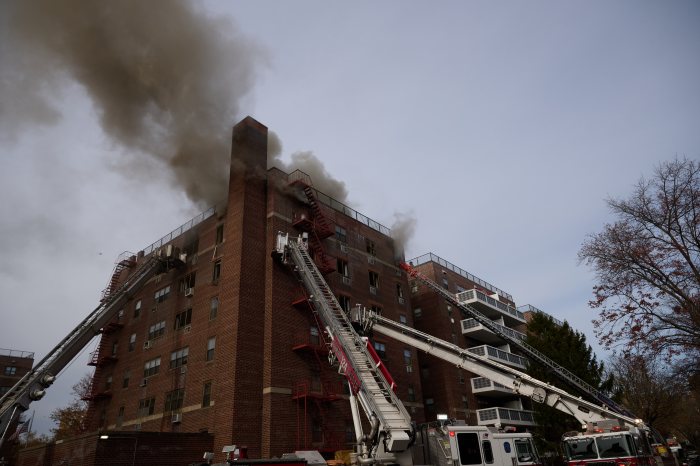By JERRY TALLMER
Sidney Lumet and I went back a long way, though I was the only one who knew it.
The place was the Belasco Theatre, which is still right there on West 44th Street. The play was “Dead End,” written and directed by another Sidney — the Group Theater’s Pulitzer-winning, 29-year-old Sidney Kingsley. The year was 1935. I was 15 years old. Sidney Lumet was 11. Born in Philadelphia, hustled to New York by his actor parents, he was already a young veteran of the Yiddish theater. Now he was on Broadway.
In the Internet’s Broadway Data Base he is only listed as “Small boy,” one of those tough, streetwise, street-talking Dead End Kids jumping in and out of the East River under the snobbish noses of the doormen in Sutton Place. Or maybe Sidney was one of the goody-goody poor little rich boys who lived there.
Whatever the case, this is what flows into mind with the death of Sidney Lumet at 86 two weeks ago, here in dear old, ever-young New York City, where he most loved to live and work.
People (movie critics) are always talking about Lumet the New York City filmmaker par excellence, but it went beyond that, went into, or sprang from, these truly theatrical and truly radical 1930s roots.
Who else would venture to make a Hollywood movie (“Daniel,” 1983) about the offspring of a couple of Commies who’d stirred up some worldwide commotion and gone to the chair? (Well, Alfred Santell, Maxwell Anderson and Burgess Meredith had done it, but that was 1936 and “Winterset.”)
Who else would shoot a big-screen picture (“Running on Empty,” 1988) about the kind of runaway New Left punks who blew up townhouses and laboratories to try to stop a war on the other side of the world?
And I also mean sexually radical, because oh hell, who would have thought, back in 1974-’75; that anyone except, say, far-out weirdos like Andy Warhol or Jack Smith could hope to get away with a picture like “Dog Day Afternoon,” about an all-American Coors- and Coke-guzzling desperado holding up a bank to get the dough to pay for his lover boy’s sex-change operation?
And make a huge time-spanning hit of it in the bargain. A flick that’s as dynamite today as the day it was first released.
How so? The magic formula?
The magic formula is that, first to last, Sidney Lumet was a pro, a craftsman of gravitas and heft, knowing where and what he’d come from, using all of what he’d come from, artistically and otherwise. His pictures are not only well salted with what are called “New York actors,” but are peppered with that special breed of starving but precision-cut Off Off Broadway actors (Julie Bovasso, Judith Malina, Al Pacino, Faye Dunaway), who often took considerable searching out.
Many years after “Dead End,” I did indeed briefly meet Sidney Lumet, if an interview can be called a meeting. At the end I asked the obligatory question: What was next on his agenda? Looking down through a hotel window on several Midtown-based sources of broadcasting power, he said he and the writer Paddy Chayefsky were thinking of making a movie about television, which would turn out to be “Network” (1976).
“Mr. Chayefsky and I know something about that,” Sidney Lumet said quietly.
They sure did.




































